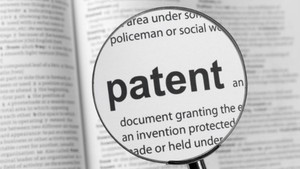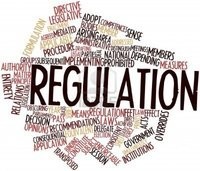The number of patent settlements between originator and generics companies concluded during 2013 has reduced compared to 2012. While the number of problematic or so-called ‘pay-for-delay’ deals have stabilized compared to 2012.
The European Commission’s (EC) fifth monitoring exercise of patent settlements in the pharmaceutical sector shows a decrease in the number of patent settlement agreements and a stabilization at a low level of settlements limiting generics entry with a value transfer.
This finding comes despite the fact that the number of International Nonproprietary Names (INNs) which were the subject of settlements increased significantly from less than 10 INNs in the first three years of the millennium to 57 in 2013. The EC takes this as evidence that companies can successfully settle patent disputes within the boundaries of the European Union (EU) antitrust rules. The EC also sees this as evidence that its scrutiny of settlements has not hindered companies from concluding settlements in general.
For the 2014 survey 54 originator and 63 generics companies were asked to submit to the EC a copy of all patent settlement agreements relevant for the EU/EEA (European Economic Community) markets. The results identified 146 patent settlement agreements between originator and generics companies between January and December 2013, compared to a total of 183 in 2012 [1], 120 in 2011 and 89 in 2010 [2]. This marks the first decrease in the number of patent settlements concluded between originator and generics companies since 2008.
Compared to the EC’s first monitoring exercise, which considered the period January 2000 to June 2008, this latest report shows that the number of patent settlements in the pharmaceutical sector that are ‘potentially problematic’ under the EU’s antitrust rules has stabilized at a low level. Between 2000 and 2008 they accounted for 22% (45 out of 207) of all settlements reported, whereas in 2013 they accounted for only 8% (11 out of 146) of all settlements. This compares to 7% (12 out of 183) in 2012.
The EC report also showed that 45% (66 of 146) of settlements did not limit generics market entry at all, whereas 47% (69) limited generics market entry but did not show a value transfer from originator to generics company, i.e. were not classified as a pay-for-delay deal.
The EC considers that such patent settlements may delay the market entry of cheaper generics and has therefore been taking action to limit potentially ‘problematic’ settlements between originator and generics companies. This has been evidenced by the EC’s action against French drugmaker Les Laboratoires Servier (Servier) and five generics companies. The companies were fined a total of Euros 427 million by the EC due to practices delaying the entry of generic perindopril, a medicine to treat high blood pressure [3].
The European Federation of Pharmaceutical Industries and Associations (EFPIA), however, ‘reiterates its longstanding position that patent settlement agreements are a symptom of a fragmented and partly inefficient enforcement regime in Europe as far as pharmaceutical patent disputes at the point of generic [drug] entry are concerned.’ The trade group is pushing for an ‘Early Resolution Mechanism (ERM) to address patent disputes sufficiently in advance of generic [drug] launch to increase legal certainty for all stakeholders’.
Although it did not announce any specific plans, the EC stated that it may in the future ‘decide to continue the monitoring exercise in order to examine further the development of the foregoing trends’.
Related articles
European Commission investigates Johnson & Johnson and Novartis over delaying generics
European Commission to investigate patent settlements again
European Commission welcomes reduction in ‘potentially problematic’ patent settlements
References
1. GaBI Online - Generics and Biosimilars Initiative. EU problematic patent settlements remain at low level [www.gabionline.net]. Mol, Belgium: Pro Pharma Communications International; [cited 2015 Jan 9]. Available from: www.gabionline.net/Reports/Problematic-patent-settlements-in-EU-on-the-decrease
2. GaBI Online - Generics and Biosimilars Initiative. Problematic patent settlements in EU on the decrease [www.gabionline.net]. Mol, Belgium: Pro Pharma Communications International; [cited 2015 Jan 9]. Available from: www.gabionline.net/Reports/Problematic-patent-settlements-in-EU-on-the-decrease
3. GaBI Online - Generics and Biosimilars Initiative. Servier and generics makers fined for pay-for-delay [www.gabionline.net]. Mol, Belgium: Pro Pharma Communications International; [cited 2014 Jan 9]. Available from: www.gabionline.net/Policies-Legislation/Servier-and-generics-makers-fined-for-pay-for-delay
Permission granted to reproduce for personal and non-commercial use only. All other reproduction, copy or reprinting of all or part of any ‘Content’ found on this website is strictly prohibited without the prior consent of the publisher. Contact the publisher to obtain permission before redistributing.
Copyright – Unless otherwise stated all contents of this website are © 2015 Pro PharmaCommunications International. All Rights Reserved.








 0
0











Post your comment